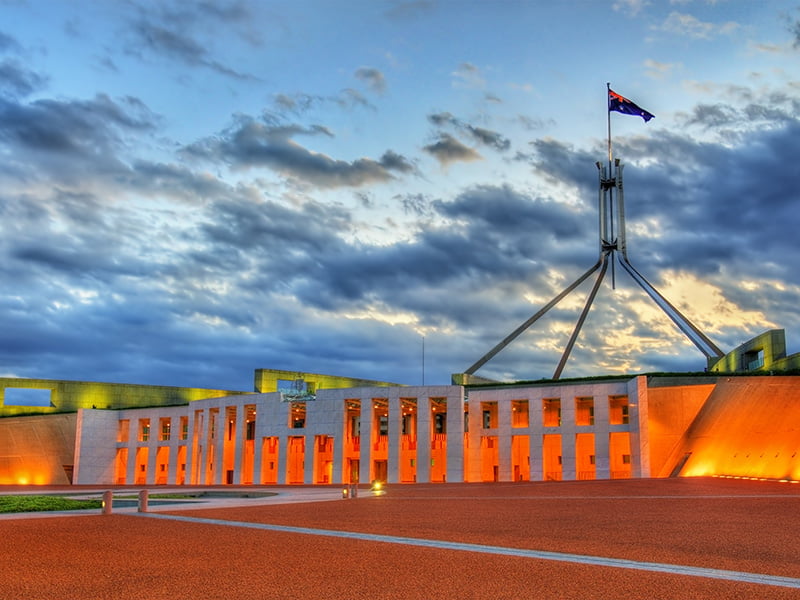The Australian Information Industry Association’s crucial Domestic Capabilities policy advisory network (PAN) has a new chair, with the election of David Elliot, the chief executive of Canberra-based tech delivery company Agile Digital.
Mr Elliot, who was already an active participant on the Domestic Capabilities PAN, takes the role from Rupert Taylor-Price, the founder and chief executive of secure cloud provider Vault Cloud.
Within the AIIA, the seven Policy Advisory Networks replaced Speciality Interest Groups as a governance structure, operating as member-based sub-committees to drive policy development for the organisation.
The Domestic Capabilities PAN has been the site of fierce policy debates as it covers capability-development through multinational tech companies, as well as sovereign capability development through enhanced support for Australian owned and controlled tech companies.

Rupert Taylor-Price has been a prime-mover on the Domestic Capabilities PAN and a fearless advocate for the sovereign sector. While Mr Taylor-Price has moved on from Domestic Capabilities PAN, he remains a member of the national board.
AIIA chief executive Simon Bush said the Domestic Capabilities PAN does important policy work on building capability in a strategically important sector.
He said the AIIA recognised that multinational companies through inward investment and tech transfer were important to building domestic capability, just as the local sovereign sector was important.
The AIIA borrowed a “Defence mindset” in relation to domestic capability in recognising that Australia is not going to invent an F/35 fighter aircraft or a nuclear submarine, “but we are going to be able to build, maintain, sustain and employ people locally and build a local industry” around those types of products.
Regardless, Future Made in Australia Office (FMiAO) set up under the Albanese government was an AIIA policy proposal, one that followed a model put in place in the US by President Joe Biden called the Made in America Office.
Mr Bush said the association had been pleased with the FMiAO goal, and that using government procurement power to boost Australian SME tech capability was now on the agenda. Progress was slow, however.
“There is probably a little frustration in relation to the speed of execution [of FMiAO],” he said.
“It is fair to say what we’re trying to focus on as a PAN is to continue to engage government on our initial vision for the Made in Australia Office, and that continues to be the ambition to grow Australian domestic tech capabilities.”
The newly-elected chair of the AIIA’s Domestic Capability Policy Advisory leadership team David Elliot said that Australia faces a real challenge in maintaining “agency” over our critical digital infrastructure.
“Whilst we are global citizens and benefit hugely from technology suppliers from all over the world, we must be vigilant to secure our data and software supply chains, ensuring we understand the technologies we rely on,” Mr Elliot said
“Having strong domestic ICT capability is crucial to this outcome, vital for keeping the lights on when global supply chains are uncertain,” he said.
As the outgoing chair, Rupert Taylor-Price said the Prime Minister Anthony Albanese, together with Finance minister Katy Gallagher and Industry Minister Ed Husic had issued a definitive directive to the Public Service to enhance the nation’s sovereign capabilities and to prioritise purchasing from Australian owned companies through its Buy Australian Plan and the Future Made in Australia Office.
However, in 2023 Mr Taylor said, “we did not meet these expectations, witnessing the rise of foreign companies ‘green and gold-washing’ with the word ‘sovereign’ cloaking much of the capability pitched to the government.”
The local industry had been buoyed by Mr Albanese’ re-commitment to using federal procurement to strengthen industry.
“As we entered the new year, the Prime Minister doubled down on his election commitment by publicly committing that the Buy Australia Plan would be one of the four priorities he would deliver in 2024,” Mr Taylor-Price said.
Incoming chair David Elliot said the Commonwealth spends more than $9 billion each year on civilian ICT procurement.
“That’s a large amount of capital that could positively influence our economic development and help reverse the slide in our economic complexity,” Mr Elliot told InnovationAus.com.
“Our government is the single biggest ICT buyer in Australia, and the money it invests in ICT procurement could increasingly flow to Australia’s technology ecosystem,” he said.
“The Labor government is now working on the Buy Australia Plan and the Future Made in Australia Office.
“Senator [David] Pocock has initiated an inquiry into capability development in the Australian tech sector. And Chris Crozier, the CIO of our Department of Defence, has recently assured the Senate of the Department’s commitment to a best-in-class global capability, supported by best-in-class sovereign capability.
“It’s an exciting time to be advocating for Australia’s domestic technology capability, and I thank the AIIA for the opportunity.”
Do you know more? Contact James Riley via Email.

